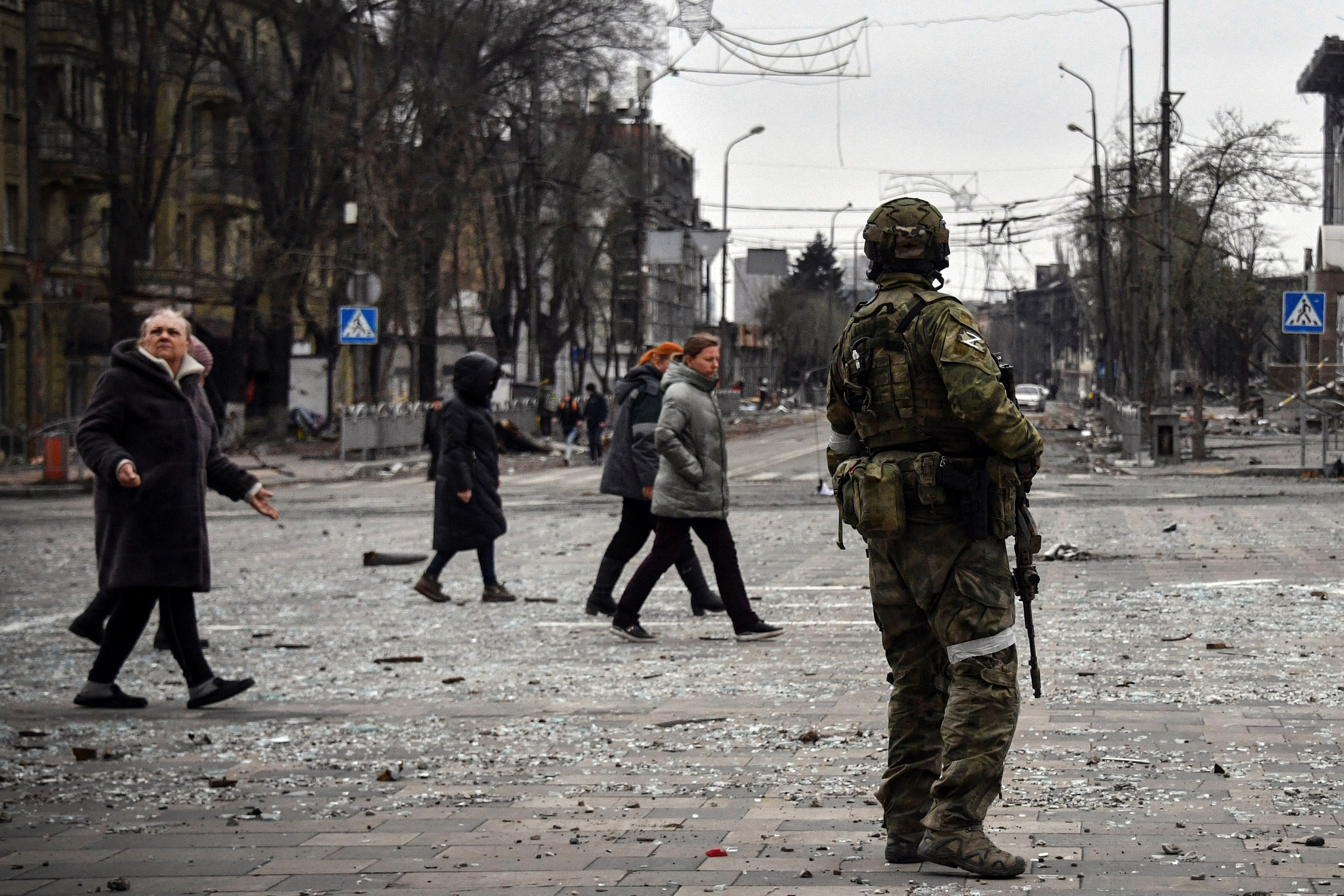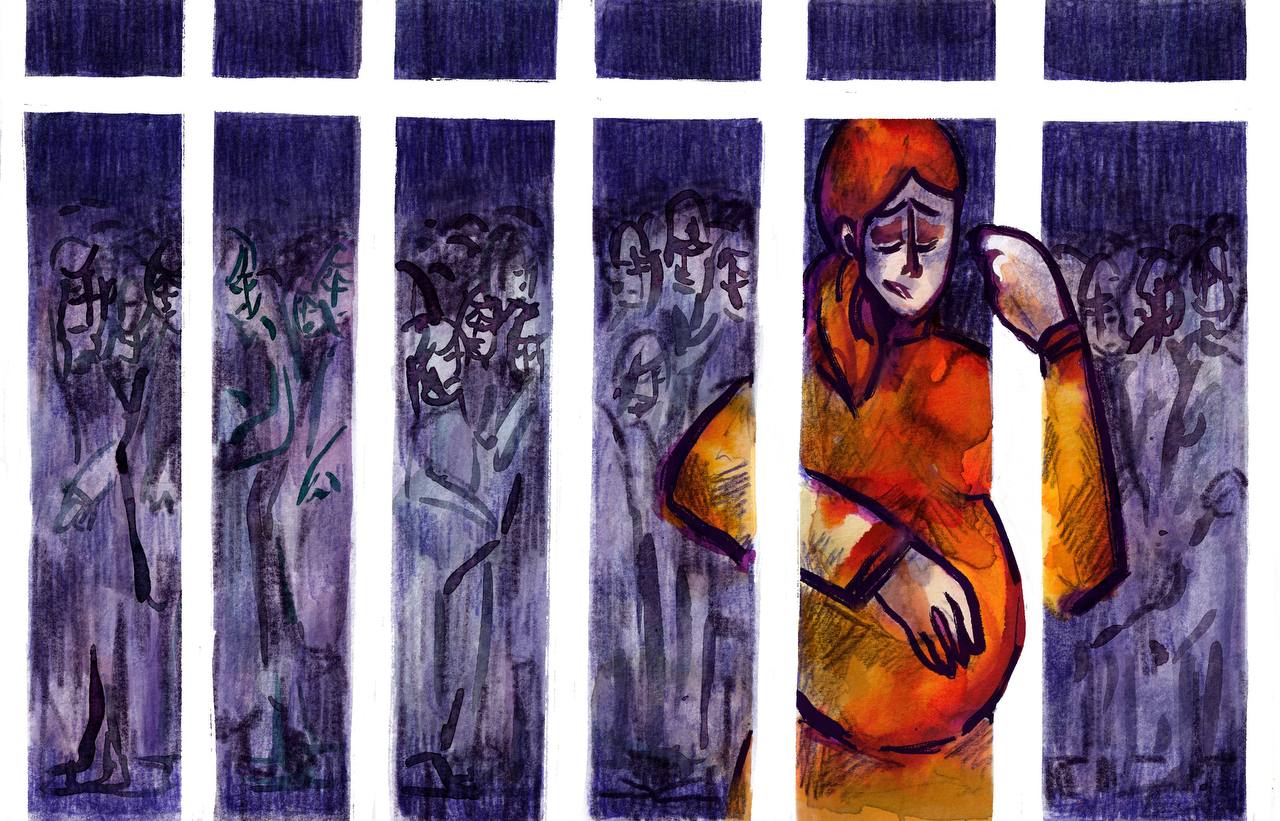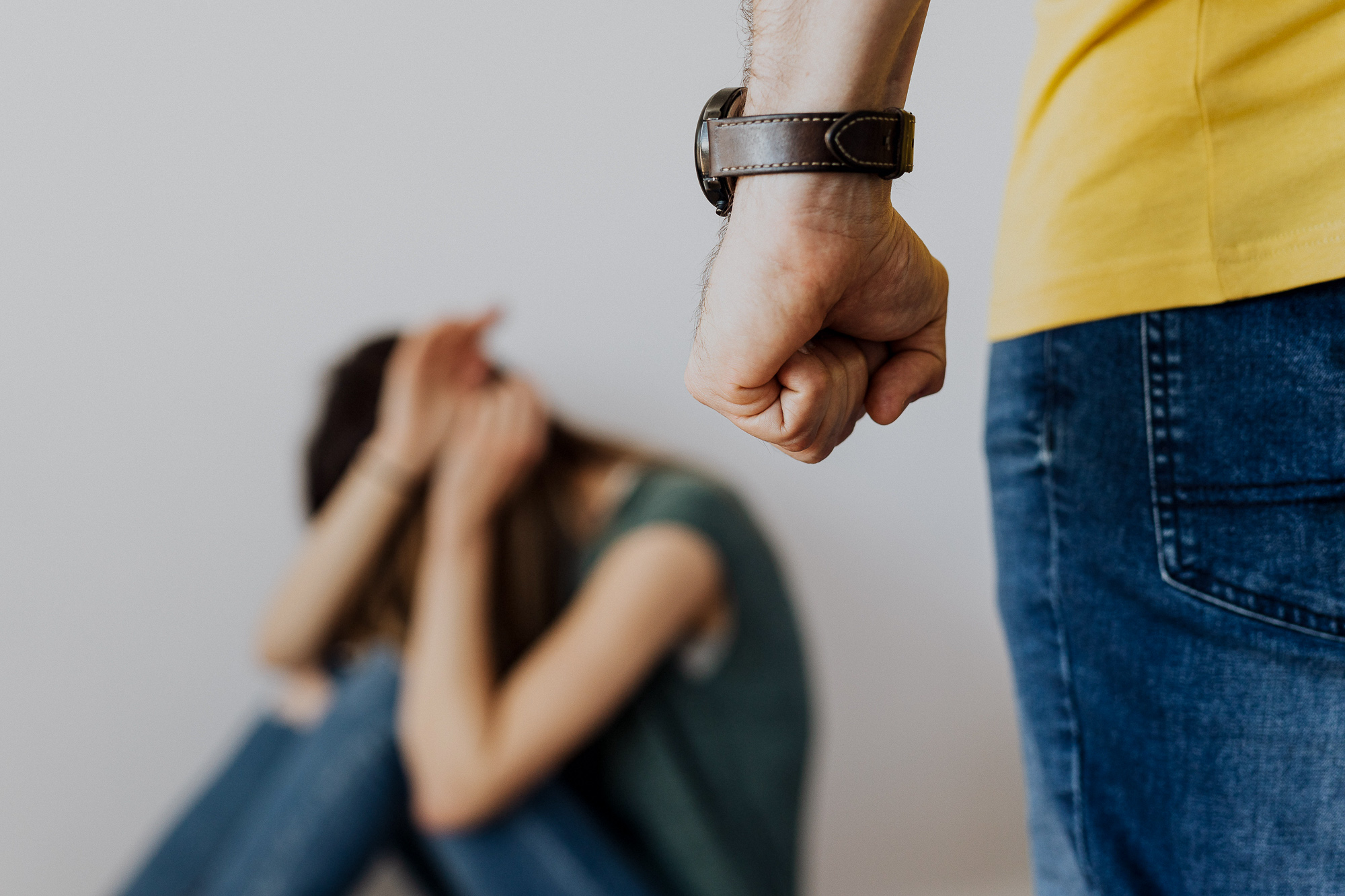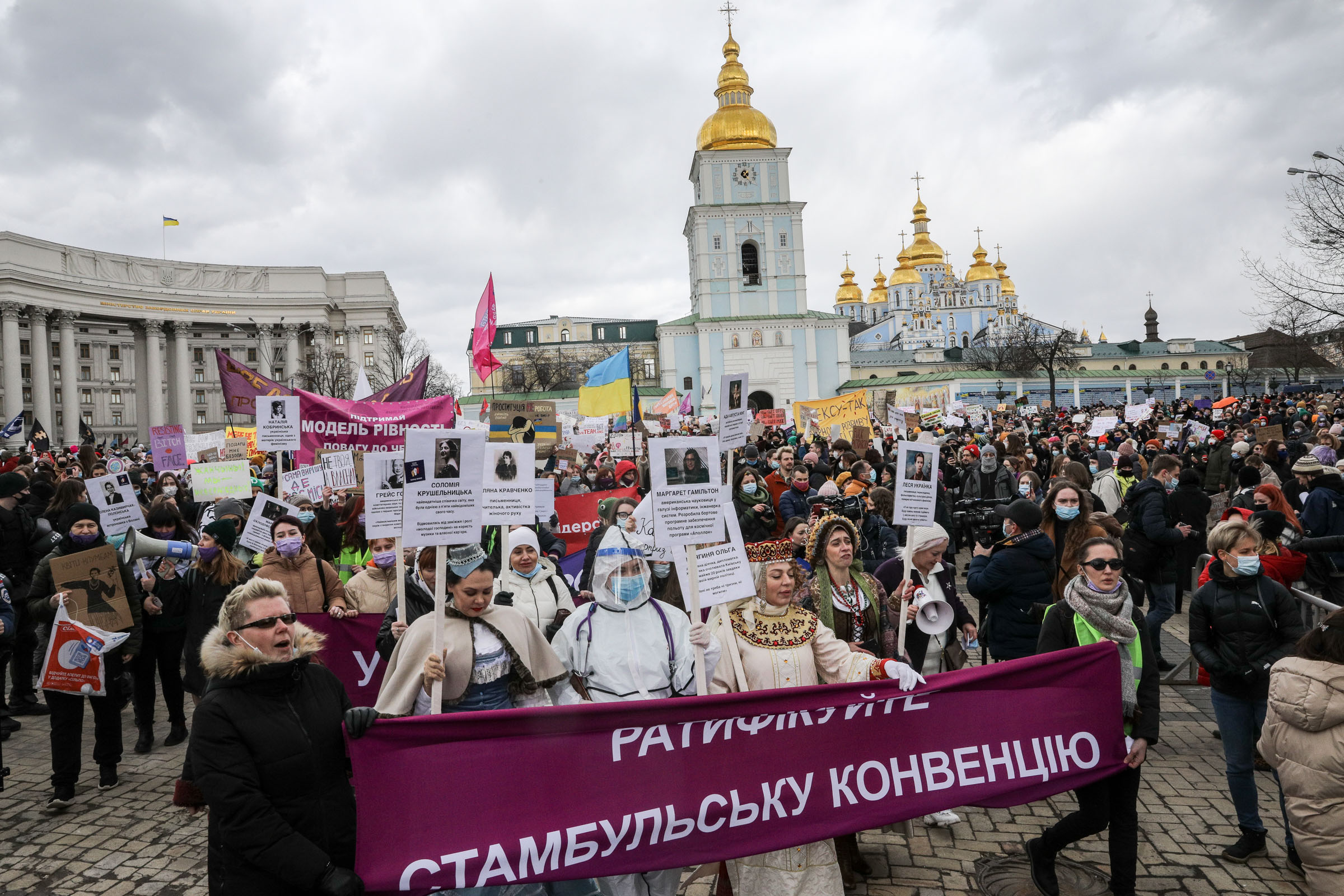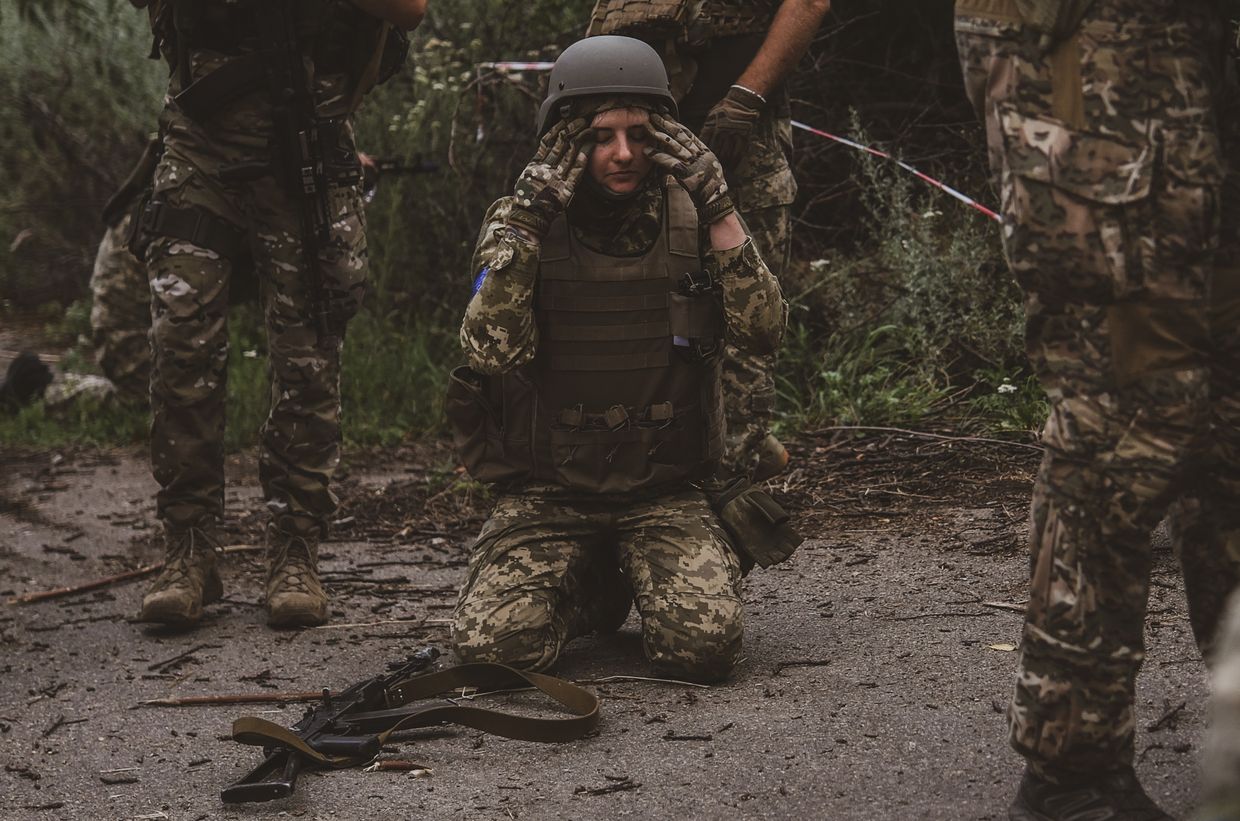Ukrainian women fight escalated gender-based violence amid war

Editor’s Note: This story was sponsored by HIAS and VOICE non-profit organizations that together work on solving the issue of violence against women and girls in Ukraine, under the project "Partnering for Change: A Project Partnership Centering Women and Girls in the Ukraine Regional Response." Women introduced by full name in the story agreed to reveal their identity.
WARNING: This story includes graphic descriptions.
Liudmyla Huseinova could not see those who took her clothes off.
She had a bag over her head, and her hands were handcuffed. She was horrified to the core and had no idea where she was.
Russian militants seized Huseinova from her home in Novoazovsk, in the occupied part of Donetsk Oblast, earlier that day. Her pro-Ukrainian stance was the reason for the search and detention.
In some cold premises, she was made to face the wall.
"You know you are helpless and can not do anything," Huseinova, now 61, told the Kyiv Independent. "You stand there with a bag over your head, with your hands handcuffed. You are being undressed and touched. They laugh at you, pinch you, and beat you."
For Huseinova, this was the start of three years in Russian captivity, where she saw copious human rights violations that included Ukrainian women being sexually assaulted and beaten.
Huseinova was among 108 women released from captivity on Oct. 17, 2022. Experiences like hers are common among women in Ukraine but only a few ever choose to talk about it.
In that sense, it’s much like the rest of the world, where violence against women and girls is rife and wars make it worse, according to the United Nations High Commissioner for Human Rights. Even for non-captives, the stress, anxiety, economic and social instability caused by war creates conditions for more domestic violence and other abuse.
In October 2022, the World Health Organization (WHO) said that the full-scale invasion had already "increased sexual and gender-based violence, including conflict-related sexual violence," in Ukraine — "yet, most cases are never reported."
"Those who have suffered from violence often remain silent because they fear judgmental looks, gossip, and condemnation. We are a society of free individuals fighting for justice,"
First Lady Olena Zelenska said during the United for Justice conference in March.
"Our primary task is to deliver this justice to the survivors of the horrific crimes of this dreadful war. We must, above all, provide them with fair treatment, support, respect, and assistance."
Sexual violence as weapon
When she came back to Ukraine, Huseinova took a long hot shower, trying to wash away that unbearable smell of Russian prison.
She had to spend 50 days in Izoliatsia, a torture facility in occupied Donetsk, reportedly managed by Russian Federal Security Services, then about three years at a Donetsk pre-trial detention center. While inside, Huseinova knew that if she ever got out, she would keep fighting for other Ukrainian women’s freedom and justice.
According to the Ministry of Reintegration of Temporarily Occupied Territories, at least 126 Ukrainian women, including 80 civilians, were in Russian captivity as of June 2023.
"They are still there. I know what risks they face, in what conditions they are, and how difficult it is for them physically and psychologically," Huseinova says.
To this end, she joined Sema Ukraine, a non-profit organization that unites and supports women who have survived conflict-related sexual violence, or CRSV. The organization was founded in 2019 and after 2022, went from less than 20 to over 50 women, all survivors.
The head of the group, Iryna Dovhan, endured very public torture. Photographs of her being tied to a pole and beaten on a Donetsk street horrified the world in 2014.
Sexual violence has been a fixture in occupied land ever since but it really took off after the full-scale invasion.
"In 2022, they received a mandate for unrestrained behavior. They gained even more confidence in impunity," Dovhan told the Kyiv Independent.

Ukraine's Prosecutor General's Office has recorded 235 cases of CRSV committed, mostly against women, since Feb. 24, 2022.
"In fact, there are many more such crimes, which is also confirmed by our international partners. Survivors are mostly ashamed and afraid to report these crimes," Deputy Prime Minister for European Integration Olha Stefanishyna said in March.
A recent report by the U.N. Independent International Commission of Inquiry on Ukraine documented a number of cases when "Russian soldiers burst into houses of villages they occupied, raped women and a girl, and committed additional war crimes against the victims and their family members."
Among the cases investigated in Kherson and Zaporizhzhia oblasts, victims of rape included a 16-year-old girl and women spanning from 19 to 83 years of age. Among them was a pregnant 16-year-old girl and three older women living alone, or with young children, or with family members who had disabilities.
Pramila Patten, representative of the U.N. Secretary-General on Sexual Violence in Conflict, said last October that rape was part of Russia's "military strategy" and a "deliberate tactic to dehumanize the victims."
"The systematic use of sexual violence as a weapon of war is one of the patterns of mass crimes against civilians committed by Russian troops in Ukraine," says Prosecutor General Andrii Kostin. "We also view conflict-related sexual violence as an element of genocide."
Dovhan agrees: "CRSV is very traumatizing. It has such long-term consequences that destroy not only the life of the person who suffered but implies the whole circle of destruction for society, the family, and the descendants."
But even when the Russians can’t get to women, gender-based violence can. Reports of domestic abuse are on the rise.
"We can not say that (Ukrainian) women are protected from gender-based violence and domestic violence," says Halyna Iegorova, a GBV specialist at a Ukrainian representative office of U.S.-based nonprofit HIAS.
"But the big difference is that in the occupied territory, there is no access to the services that can help, unlike the Ukrainian-controlled areas, where such opportunity exists."
Nowhere is safe
In Ukraine, two out of every three women experience psychological, physical, or sexual violence in their lifetime, and 18% of women and girls aged 15–49 have experienced intimate partner violence, according to the WHO.
Vinnytsia Oblast resident Valentyna, 56, saw this play out firsthand — her family endured years of violence at the hands of her 36-year-old nephew. It got worse after the full-scale invasion began.
"In May and June only, I had to call the police four times," Valentyna told the Kyiv Independent.
As the invasion approaches its two-year mark, domestic violence in the country is getting worse. In August, National Police Official Serhii Aloshkin said there have been 40% more cases compared to last year.
As of October 2023, police recorded almost 244,000 domestic violence calls, as much as they got in all of 2022, according to Interior Minister Ihor Klymenko.
"Psychological stress, emotional pressure, separation of families, unemployment, and other factors worsen the situation with domestic violence in the country," Klymenko said.
Psychoanalyst Iryna Kuratchenko agrees, adding that many soldiers are psychologically traumatized when they return home from the front.
"There has been an increase in the number of cases in which male servicemen commit domestic violence," Kuratchenko, who also heads Zaporizhzhia-based NGO, Association of psychologists and psychoanalysts Vzayemodiya, that supports survivors of gender-based violence (GBV), told the Kyiv Independent.
As an example, she recounts the story of a woman who found herself trapped and unable to run from her abusive husband when the full-scale invasion started.
Some women became stuck in occupied areas with both their abusive partners and the rapacious Russians.
Even when they flee the war, Ukrainian women are still in danger. A 2022 research by the University of Birmingham, featuring 32 interviews with refugee and internally displaced Ukrainian women, found that all of them "had been subjected to war violence."

"Some had experienced sexual and gender-based violence before the war, while others had been exposed to different forms of abuse which continued through the conflict, in transit, and then once they reached refuge."
Fleeing women leave behind their entire system of support, including friends, family, and medical professionals they trust, says Iegorova. Finding help is much harder in an unknown place, which discourages women from trying.
Survivors often choose not to report gender-based violence, guided by a lack of faith in the justice system or pervasive fear of the abuser.
Ukrainian and international organizations have stepped up to shift that perception.
Speak out, demand justice
Kuratchenko says Ukraine has made significant progress in addressing and reacting to GBV in recent years.
The parliament finally ratified the Istanbul Convention, whose signatories work together to protect victims and prosecute offenders.
"It also means that every year, the country must report on how it fulfills the Istanbul
Convention, and it's a big responsibility," says Kuratchenko. "The state, law enforcement agencies, and other structures do a lot, but the war… it prevails."

The National Police has more than 60 units dedicated to responding to domestic violence, counseling survivors and trying to prevent such crimes, according to its report from Nov. 23.
Education is a crucial part of prevention.
Iegorova says that many people in Ukraine "live without realizing that violence is a part of their lives" as they can not identify it.
Therefore, HIAS, along with other organizations, works to raise awareness among the population about these issues so that people can recognize them, she says.
"Only when a person recognizes that they are living in a violent situation and understands that they are experiencing violence, they can seek help on their own."
According to Iegorova, HIAS has recently held an eight-week-long educational program for women, raising their awareness on how to identify GBV and where to seek help.
The organization strives to ensure that information about GBV services is available in every rural or urban council, she says. "We make an effort to distribute it even in hospitals or women's clinics so that people who come in can see the brochures."
Based in the partially-occupied Zaporizhzhia Oblast, Vzayemodiya, among other things, organizes training for local law enforcement and other specialists, teaching them to identify CRSV, communicate with the survivors, and know where to refer them to get the help they need, including psychological support.
Apart from informing Ukrainians and people worldwide about CRSV committed by the Russian troops, Sema Ukraine also helps document such cases, aiming to bring the perpetrators to justice.
The organization also helps CRSV survivors get medical, social, and legal assistance and supports their families, especially children.
"What makes our organization remarkable is that we have over a dozen women who have managed to transform their trauma into post-traumatic growth within the organization," says Dovhan.
"They are active, they help others, and they serve as examples to new women joining the organization."
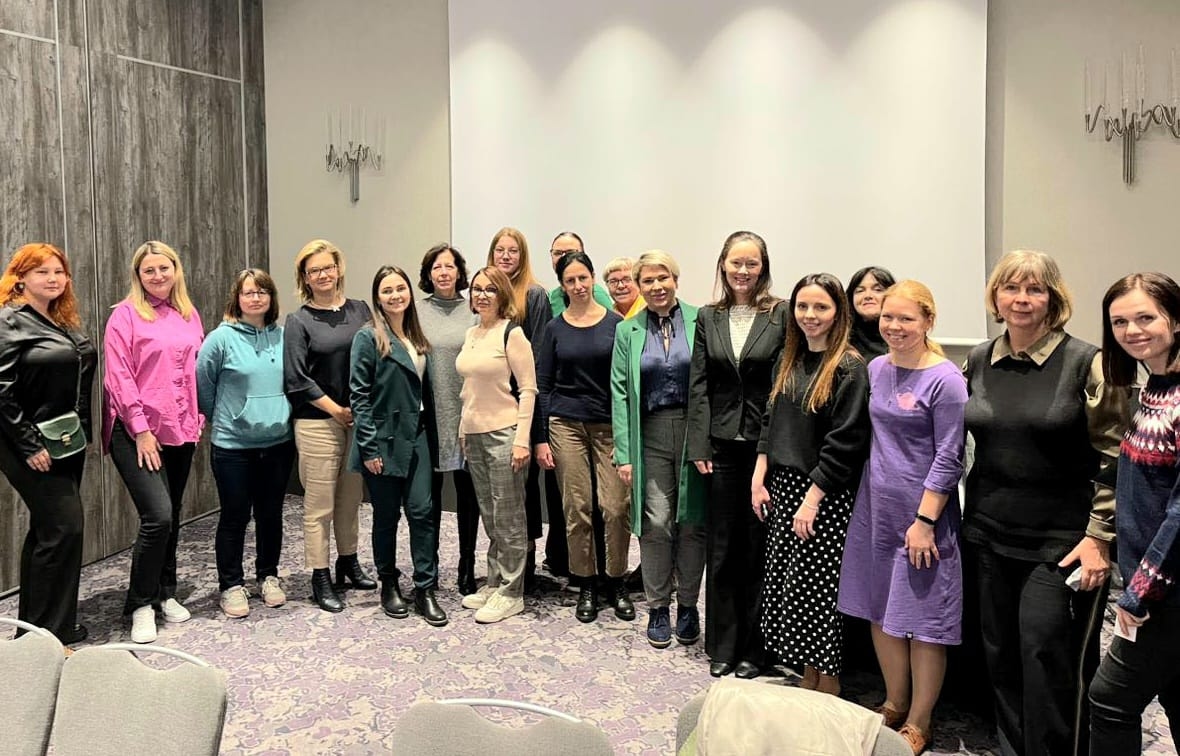
Several other female-led organizations support gender-based violence survivors across Ukraine.
Kharkiv-based organization Green Landia, for instance, has recently established "support spaces for women and girls" in the regional capital and the oblast, offering educational and psychological sessions, art workshops, and other activities.
In Kherson, the Uspishna Zhinka (Successful Woman in English) organization educates women on "healthy and unhealthy relationships," gender stereotypes, and equality. It also works on the economic empowerment of women to help them escape domestic violence.
To make an even greater impact, such organizations need support too.
Together with the global feminist organization Voice, HIAS supports smaller Ukrainian women-led organizations such as Sema Ukraine, Uspishna Zhinka, Green Landia and Vzayemodiya. The grants allow them to provide individual and group counseling and needed goods to survivors of GBV and CRSV.
"Support groups for women who have experienced domestic violence are highly effective, especially when they share their own experiences. This is the most effective way for them to connect and heal," says Kuratchenko.
Funding such organizations is important because, as Iegorova emphasizes, they "provide strong support to the local population."
"Without them, it would be much more difficult for the state to cover the needs of the people."
However, to receive crucial assistance and initiate the pursuit of justice, gender-based violence survivors must start by reporting what had happened to them.
Ukraine’s Ombudsman Dmytro Lubinets says the stories of those affected by CRSV are "their weapons in the fight against the aggressor, and they serve as tools in the hands of law enforcement on the legal battlefield."
"Don't be afraid to speak out. Don't be afraid to demand punishment for the perpetrators," says Huseinova.
Note from the author:
Hi! Daria Shulzhenko here. I wrote this piece for you. Since the first day of Russia's all-out war, I have been working almost non-stop to tell the stories of those affected by Russia’s brutal aggression. By telling all those painful stories, we are helping to keep the world informed about the reality of Russia’s war against Ukraine. By becoming the Kyiv Independent's member, you can help us continue telling the world the truth about this war.


